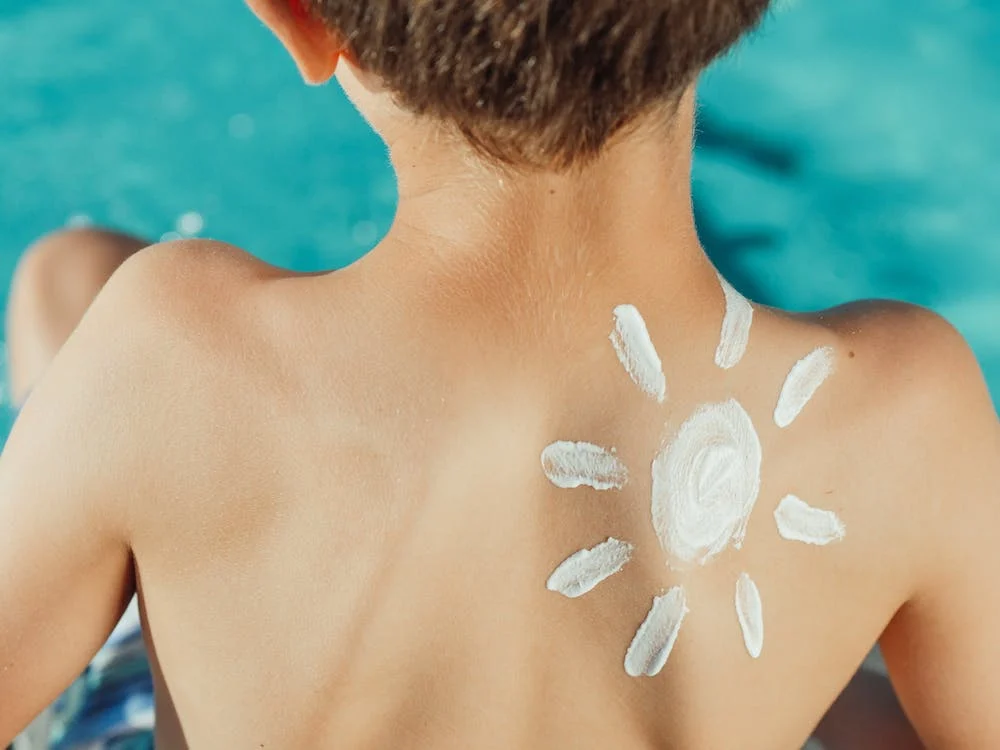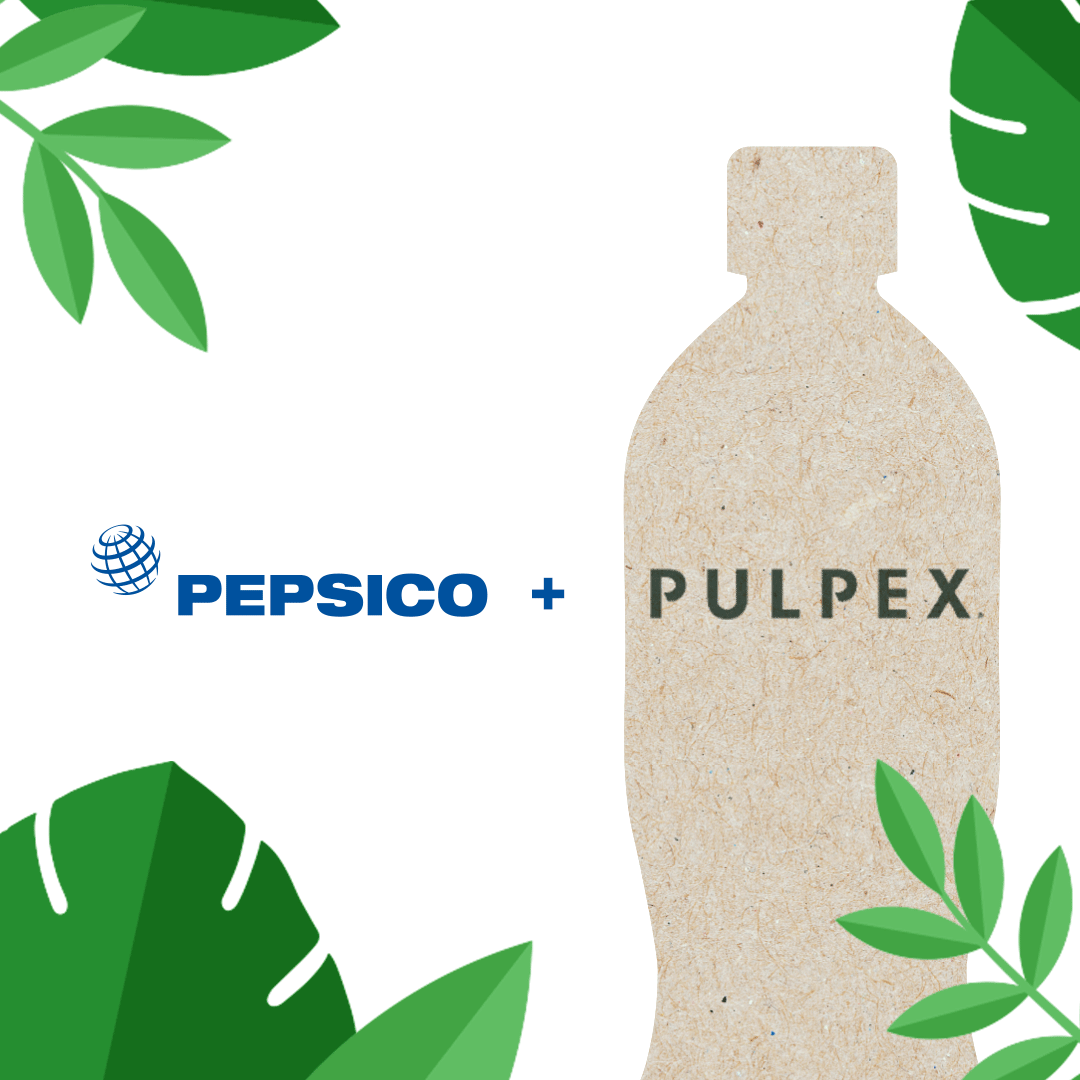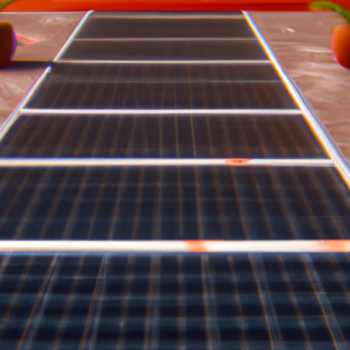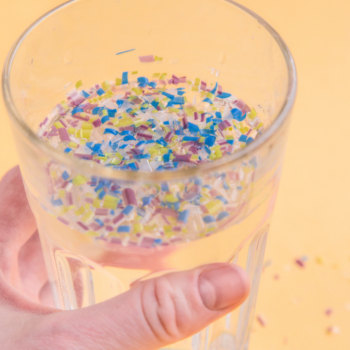|
|
Protecting your skin from the harmful effects of the sun is crucial, but did you know that traditional sunscreens can also harm our precious coral reefs? That’s where biodegradable sunscreen with SPF 50 comes in.
This sunscreen shields your skin from UV rays and breaks down naturally without leaving harmful residues behind. With the increasing awareness of coral bleaching and ecosystem damage caused by regular sunscreens, many companies are now offering reef-safe alternatives.
This article will explore why biodegradable sunscreen is ideal for your skin and the delicate balance of marine ecosystems.
Key Takeaways
- Biodegradable sunscreen is reef-safe and does not harm marine life.
- Mineral-based filters like zinc oxide and titanium dioxide provide broad-spectrum protection.
- Biodegradable sunscreens protect skin from sunburns and premature aging while minimizing damage to coral reefs and marine ecosystems.
- When choosing a biodegradable sunscreen, look for ingredient transparency, reef-safe labels, and natural ingredients like zinc oxide and titanium dioxide.
Why is Sunscreen Important for Protecting Your Skin?
Sunscreen is essential for protecting your skin because it helps prevent sunburn and reduces the risk of skin cancer. Sunburn occurs when your skin is exposed to the sun’s ultraviolet (UV) radiation, specifically UVB rays. Prolonged exposure to these rays can damage the DNA in your skin cells, leading to mutations that can cause skin cancer. Applying sunscreen creates a barrier between your skin and the harmful UV rays, shielding it from damaging effects.
Biodegradable sunscreen is an excellent choice for sun protection as it not only safeguards your skin but also minimizes environmental harm. Traditional sunscreens often contain chemicals like oxybenzone and octinoxate, which are toxic to coral reefs and marine life. Biodegradable sunscreens omit these harmful ingredients, making them reef-safe.
UV radiation and its effects on the skin

Exposure to the sun’s ultraviolet (UV) radiation is a well-documented cause of various skin issues, and ample research supports the importance of sunscreens. UV radiation from the sun can lead to sunburn, premature aging (wrinkles, age spots), and an increased risk of skin cancer, especially when it comes to UVB and UVA rays. These rays penetrate the skin and cause DNA damage, which can eventually lead to skin cancer.
Importance of SPF 50 sunscreens
The significance of using a high SPF (Sun Protection Factor) sunscreen, such as SPF 50, is well-established. SPF primarily measures the effectiveness of sunscreen in protecting against UVB radiation, which is responsible for causing sunburn. An SPF 50 sunscreen offers a higher level of protection by blocking approximately 98% of UVB rays, compared to an SPF 30 sunscreen, which blocks around 97%. While this may seem like a slight difference, it can significantly reduce the risk of sunburn, which, in turn, helps mitigate the potential for long-term skin damage and the development of skin cancers.
Water resistance in sunscreens

Image Credit: jasminetalksbeauty.com
Research has shown that water-resistant sunscreens are essential for those who engage in water-based activities, as regular sunscreens tend to wash off quickly when submerged in water, leaving the skin vulnerable to UV damage. Water-resistant and very water-resistant sunscreens are ideal for swimming and intense exercise.
Still, it’s essential to remember that no sunscreen is entirely waterproof, as they all eventually wash off when exposed to water. Sunscreens labeled as “water-resistant” are tested to remain effective “very water-resistant” can last for up to 40 minutes of swimming, while those labeled as “very water-resistant” can last for up to 80 minutes in the water.
What are the Concerns about Traditional Sunscreens?
Harmful chemicals in some sunscreens
Some traditional sunscreens contain harmful chemicals such as oxybenzone and octinoxate. These chemicals have been found to harm coral reefs and marine life, leading to environmental concerns.
Impact of oxybenzone and octinoxate on coral reefs
One of the concerns about conventional sunscreens is their potential impact on marine ecosystems, particularly coral reefs. Many traditional sunscreens contain chemicals that are harmful to these delicate ecosystems. When we apply sunscreen and enter the water, these toxic chemicals can wash off our bodies and enter the ocean.
Researchers have long recognized the harm caused by octinoxate and oxybenzone, which negatively impact corals and hinder their resilience and reproductive abilities. In response, sunscreen companies introduced avobenzone, which degrades quickly and necessitates stabilization with octocrylene. As a result, sunscreens free from octinoxate and oxybenzone typically incorporate octocrylene for adequate, lasting protection.
To address this issue, biodegradable sunblocks have been developed as an alternative. Biodegradable sunscreens are formulated with ingredients that break down naturally and do not harm marine life. They typically use mineral-based filters like zinc oxide or titanium dioxide to provide broad-spectrum protection against UVA and UVB rays.
Watch how Hawaii bans sunscreens with oxybenzone.
Embedded video link:
Cruelty-free and eco-friendly alternatives
Increasing awareness about the impact of traditional sunscreens on the environment has led to the development of cruelty-free and eco-friendly alternatives. Biodegradable sunscreens are formulated using reef-friendly ingredients that do not harm coral reefs or other marine life.
Example products of cruelty-free and eco-friendly biodegradable sunscreens include:
- All Good Mineral Sunscreen Lotion: This sunscreen is made with non-nano zinc oxide and features a biodegradable formula safe for marine life.
- Raw Elements Eco Formula Sunscreen: A reef-safe sunscreen that contains natural ingredients and is packaged in eco-friendly, recyclable containers.
- Thinksport Safe Sunscreen: This sunscreen is free from harmful chemicals, vegan, and Leaping Bunny certified, ensuring it’s cruelty-free.
- Badger Sport Sunscreen Cream: A biodegradable sunscreen that offers SPF 35 protection while being gentle on the environment.
- Stream2Sea SPF 30 Sunscreen: This sunscreen is designed with eco-conscious consumers in mind, with non-nano zinc oxide and safe, reef-friendly ingredients.
These products provide sun protection while minimizing the environmental impact, making them excellent choices for eco-conscious consumers.
Biodegradable Sunscreen: Why is it Reef-safe?
Understanding biodegradable sunscreens
Biodegradable sunscreen is considered reef-safe, using ingredients that break down naturally and do not harm marine life. Unlike traditional sunscreens, which often contain harmful chemicals like oxybenzone and octinoxate, biodegradable sunscreens use mineral-based ingredients such as zinc oxide or titanium dioxide to protect against the sun’s harmful rays.
To better understand the benefits of using biodegradable sunscreen, let’s take a closer look at its characteristics compared to traditional alternatives:
| Biodegradable Sunscreen | Traditional Sunscreen |
|---|---|
| Mineral-based chemical chemical chemical | Chemical-based |
| Reel-safe | Harmful to reefs |
| Degrades naturally | Persists in the environment |
By opting for biodegradable sunscreen, you can enjoy the outdoors responsibly without compromising the health of our oceans and marine life. So go ahead and lather up with reef-safe SPF 50 sunscreen to protect your skin while doing your part to preserve our precious underwater ecosystems.
How to choose the best biodegradable sunscreen?
Reading customer reviews and ratings
When selecting a biodegradable sunscreen, it is essential to consider customer reviews and ratings. Authentic experiences and feedback from other users can provide valuable insights into the effectiveness and quality of the product.
Considerations for sport-specific sunscreens
Choosing a sport-specific biodegradable sunscreen is recommended if you are involved in sports or activities requiring prolonged sun exposure and physical exertion. These sunscreens are designed to withstand sweat, water, and movement without compromising sun protection.
Factors to consider when selecting a biodegradable sunscreen
Some factors to consider when choosing a biodegradable sunscreen include the SPF level, water resistance, and the presence of reef-friendly ingredients. Finding a sunscreen that meets your needs while being environmentally conscious is important.
Frequently Asked Questions
Biodegradable sunscreen with SPF 50 is a type of sunscreen formulated to protect your skin from harmful UV rays while being environmentally friendly. It is designed to break down and degrade naturally in the environment, thus reducing the impact on marine life and coral reefs.
Biodegradable sunscreen differs from regular sunscreen in its formulation. It is made using ingredients that are less harmful to the environment and are more likely to break down naturally. Regular sunscreen, on the other hand, may contain ingredients that are known to cause damage to coral reefs and marine life.
Yes, biodegradable sunscreen can also be a mineral sunscreen. Mineral sunscreens use zinc oxide or titanium dioxide as active ingredients for sun protection. These ingredients are generally considered less harmful to the environment than chemical sunscreens.
Sun protection provided by biodegradable sunscreen can vary depending on factors such as sweating, swimming, and sun exposure. However, most biodegradable sunscreens are designed to be water resistant for a certain period, typically around 80 minutes.
“Reef safe” refers to products, including biodegradable sunscreen, that do not contain harmful ingredients that can damage coral reefs and marine life. Biodegradable sunscreens are formulated to minimize or eliminate the use of chemicals, such as oxybenzone and octinoxate, which have been shown to harm coral reefs.
Yes, biodegradable sunscreen can provide broad-spectrum protection. Broad-spectrum sunscreens protect against both UVA and UVB rays, which are known to cause skin damage and increase the risk of skin cancer.
Yes, there are biodegradable sunscreens available in spray form. These sunscreen sprays provide an easy and convenient way to apply sunscreen, especially for hard-to-reach areas. Just follow the instructions on the product and apply it evenly for adequate sun protection.
Biodegradable sunblock is another term used to refer to biodegradable sunscreen. They both aim to provide sun protection while being environmentally friendly.
No, not all sunscreen creams are biodegradable. Some sunscreen creams may contain ingredients that are harmful to the environment, making them non-biodegradable. It’s essential to look for specific labels or certifications indicating that a sunscreen cream is biodegradable.
Biodegradable sunscreen can provide adequate sun protection, just like regular sunscreen. The SPF (Sun Protection Factor) value determines the level of protection against UVB rays, and biodegradable sunscreens can have SPF 50 or higher, which is considered to provide high-level protection.
Conclusion
In conclusion, prioritizing your skin’s health and the well-being of our precious coral reefs is a shared responsibility. Opting for biodegradable sunscreen with SPF 50 is a thoughtful choice, ensuring you enjoy sun protection without harming the environment. By making this switch, you actively contribute to preserving our oceans and protecting your skin, allowing for a brighter and more sustainable future. So, go ahead, enjoy the sun, and embrace the beauty of our natural world while keeping it safe and thriving.












